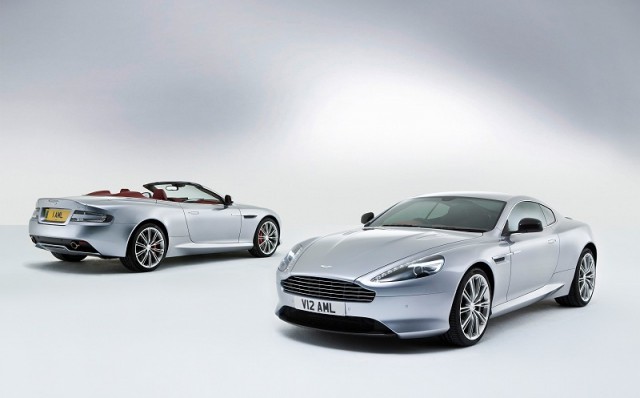Following on from the unveiling of its new 'Super GT', the Vanquish, Aston Martin has revealed a raft of changes for the DB9 grand tourer range. A modest update inside and out is complemented by more power and chassis enhancements. Aston also announced that the Virage model is to cease production, so this car must take its place as well.
Exterior
The 2013 DB9 takes many elements of the Virage's look, but as ever it's unmistakably an Aston Martin. The notably new bits include a more pronounced (but still integrated) rear spoiler and a new side strakes with LED indicators. Buyers may specify the Carbon Pack from launch, which among other things features a carbon fibre front splitter.
Interior
Inside, the DB9 features something called a leather 'welt' for the first time. It looks and feels better than the name suggests. Glass-covered switchgear continues and buyers can specify a new set of lightweight seats. The latter have a carbon fibre and Kevlar structure and save a useful 17kg from the weight - though they can only be specified when the rear seats are deleted. A generous standard specification includes leather upholstery, electrically adjusted sports seats, satnav and climate control. Amongst the extensive customisation options is a leather headliner for the first time, plus an interior Carbon Pack.
Mechanicals
The new DB9 will be powered by a development of the Vanquish's 'AM11' 6.0-litre V12 petrol engine. Maximum power is quoted at 517hp for the DB9, backed up by 620Nm of torque - in comparison to 470hp and 600Nm for the outgoing DB9.
Standard on the 2013 model will be Carbon Ceramic Matrix (CCM) brakes supplied by Brembo. The front discs measure 398mm, while the rears are 360mm in diameter and they're mounted in a 'floating' manner to accommodate flex without shudder. A total of 12.5kg has been saved with these, never mind the knock-on advantages of the system. Adaptive damping is also standard. The driver selects from Normal, Sport or Track modes.
Anything else?
In its press release Aston Martin alludes to a new way of achieving pedestrian protection without compromising the design of the front of the car. Details are scant, but the company reckons it's patent worthy.

